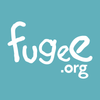Striving for Education in Unreasonable Circumstances - Refugee Education in Malaysia & What Needs to Happen Next

A Needs Assessment Study by Fugee reveals the systemic challenges facing refugee education in Malaysia and charts a path forward for all stakeholders.
A recent needs assessment by Fugee Org, titled "Striving for Education in Unreasonable Circumstances," paints a stark picture of the immense challenges confronting the estimated 59,250 refugee and asylum-seeking children in Malaysia. Excluded from the national education system, their access to learning is entirely dependent on informal, non-state Alternative Learning Centres (ALCs).
This reality is the consequence of Malaysia’s policy stance: Malaysia has not ratified the 1951 Refugee Convention and views refugees as persons "in transit," without legal status.
The study was done to understand the challenges and to recommend improvements surrounding refugee education in Malaysia. The report is a powerful call to action, outlining immediate and long-term strategies to ensure these children, many of whom have been born and will remain in Malaysia, can reach their full potential.
Read a brief overview of the report below or access the full report [here].
The Systemic Crisis: Education Denied

An alarming fact is that refugee, stateless and asylum seeker children are denied education. As of March 2025, only about 35% of registered school-age refugee children were enrolled in ALCs, a situation that has persisted for at least two decades.
The lives of these children are marked by extreme precarity, which is compounded by several key barriers. Financial hardship is a pervasive issue, as refugee families lack the legal right to work, making it immensely challenging to secure a stable income and afford education fees. This financial difficulty often forces children to drop out, with boys leaving school to find work and girls leaving for domestic chores or early marriage.
Furthermore, safety and vulnerability pose daily threats, as the constant risk of harassment, arrest, and detention discourages regular school attendance. Even the Alternative Learning Centres (ALCs) themselves face ongoing risks of targeted enforcement actions by the authorities.
Adding to this instability, the UNHCR registration process can take years, leaving thousands of asylum seekers and their children in a prolonged state of heightened vulnerability without the protection needed to safely access education.
The ALC Ecosystem Struggling to Keep up with Demands
![]()

![]()
The study interviewed 31 ALCs and 12 key informants across Peninsular Malaysia to detail the operational struggles. The general experience is a chronic struggle against four core deficits:
-
Chronic Lack of Financial Resources: This is the most pressing and persistent challenge. It undermines the ability to pay and retain qualified teachers, afford suitable premises, and secure expensive curriculum materials.
-
Inadequate Infrastructure: Most ALCs operate out of upper storeys of shoplots, which are not ideal learning environments. This limits space for recreation and compromises child safety and protection practices. Most ALCs also lack funding and expertise to provide proper organisation-wide infrastructure and leadership.
-
Shortage of Qualified Teachers: Due to the lack of funding, many ALCs operate with a mixture of paid, partly paid, and volunteer teachers, many of whom lack professional teaching qualifications. Training is often scarce, fragmented, and lacks follow-up, raising concerns about overall effectiveness.
-
Insufficient Educational Materials: There is wide diversity in the curriculum and content taught, especially at the primary level. This diversity results in an absence of standardised education, monitoring, and testing, affecting the quality of education. As most ALCs rely on donated educational resources, these can be of inconsistent quality and quantity.
Aspirations and A Call for Coordinated Action
Despite these enormous difficulties, ALC leaders are resilient, with their aspirations focusing on stable funding, access to a standardised, suitable curriculum, and the recruitment of qualified teachers. Their ultimate dreams are the integration of students into national schools and access to higher education pathways.

The 4 Focus Areas & 6 Key Recommendations
The report concludes with six key recommendations under four principal areas:
1. Towards Inclusivity
-
Recommendation 1 & 2: Continue advocacy to encourage the Malaysian Government to provide refugees with legal status and an administrative framework and to include refugee children's education in the national system.
-
Recommendation 3: Encourage UNHCR Malaysia to expedite the registration process for asylum seekers and their families.
2. Towards Coordination
-
Recommendation 4: Seriously consider establishing a Malaysian Refugee Education Council (MREC) or equivalent. This interim body would coordinate all relevant stakeholders to create a more systematic and sustained approach to improving education quality and inclusivity.
3. Towards Quality
-
Recommendation 5: Develop and disseminate a toolkit or equivalent resource to support existing and new ALCs. This toolkit should cover crucial topics such as ALC administration, curriculum options, teacher training, and an online repository of resources.
4. Towards Expanded Teacher Professional Development
-
Recommendation 6: Develop a more systematic and accessible pathway for teacher professional development. This should focus on sustained, methodical professional development and formal accreditation, particularly for teachers from within the refugee community.
A Foundation for Action: Join the Movement
The six recommendations outlined above represent a clear path to addressing these systemic challenges. The task is immense, but the individual and social costs of inaction are profound and long-lasting.
We urge all interested parties—including NGOs, corporations, community leaders, educators, and government bodies—to collaborate on these strategies.
Here is how you can take action today:
-
Collaborate on Solutions: We are actively seeking partners to take the lead or lend expertise to the six key recommendations. Whether you can advance policy advocacy (Recs 1, 2, 3), help establish a coordination body (Rec 4), develop essential resources (Rec 5), or fund teacher pathways (Rec 6), your contribution is vital.
-
Learn More: We invite you to be part of the solution. Get in touch with Fugee Org to discuss how your organization or your expertise can directly support the implementation of these recommendations and build dignified futures for refugee children.
The future of a generation of children depends on what we do next.
Read the full report [here].

An infographic brief overview of key data, key findings, and the key recommendations from the report

